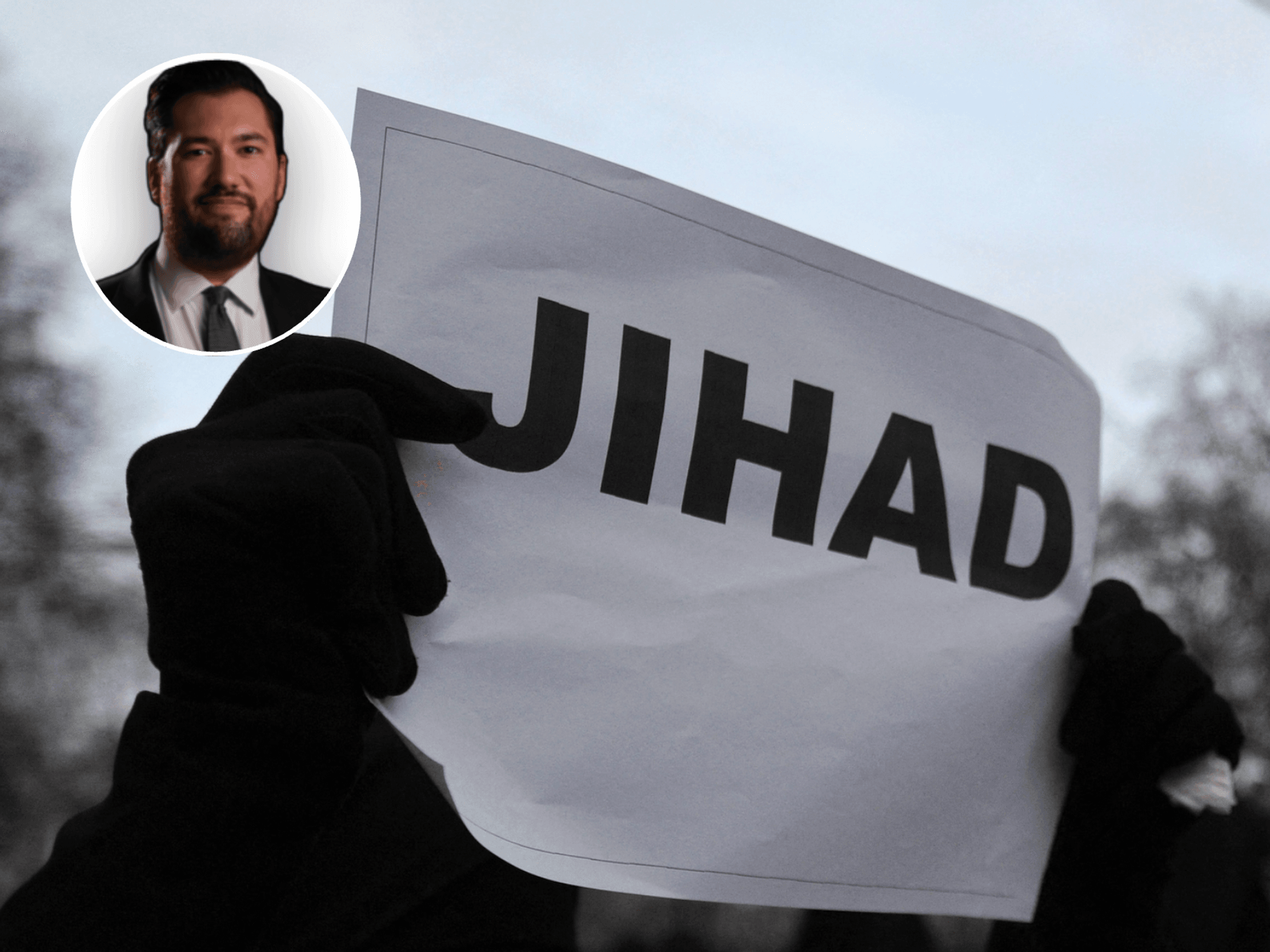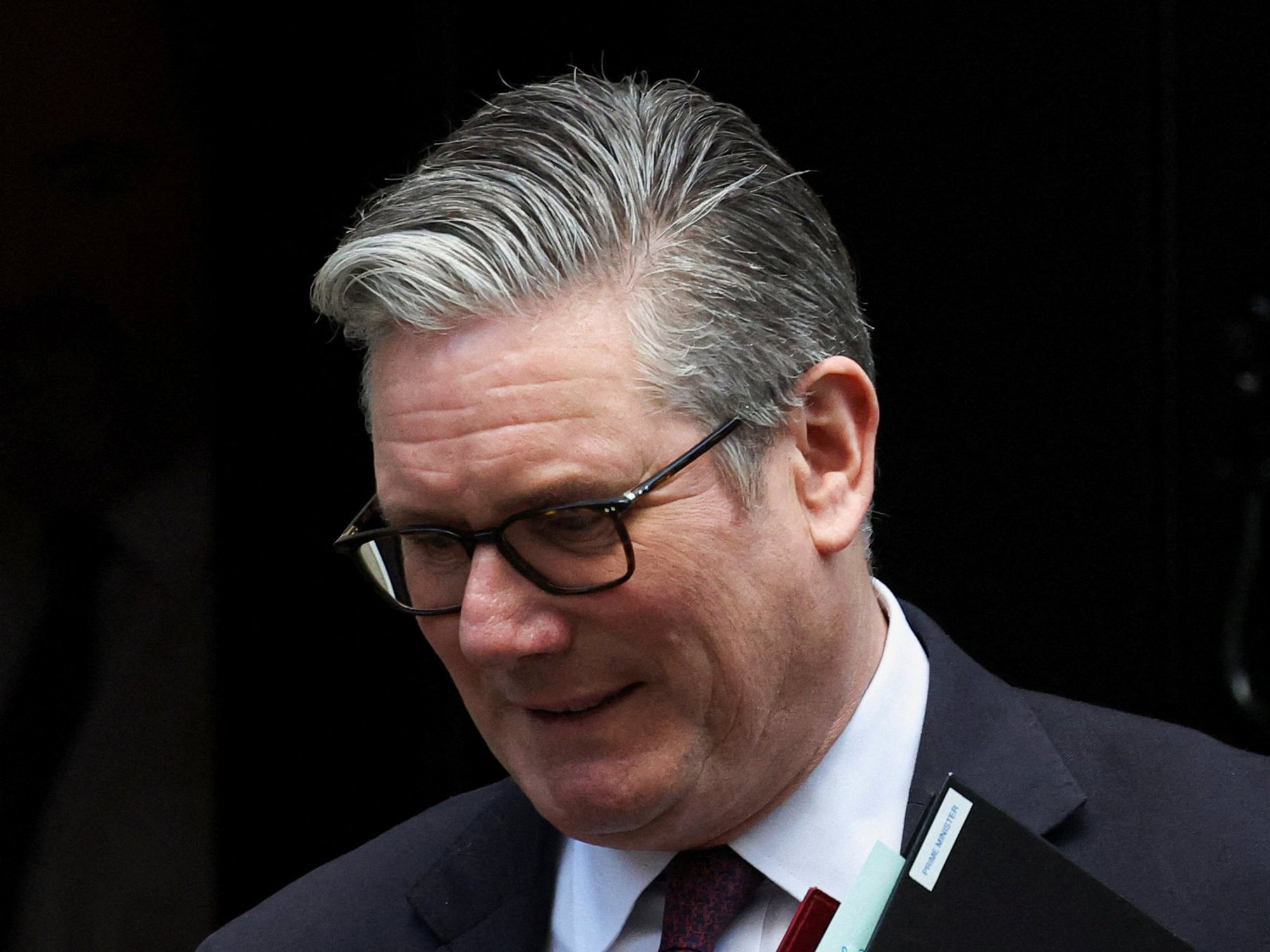‘Airmen’ is offensive and should be avoided, Nato gender-inclusive manual claims

Guidance suggests that military ranks within the Navy and Air Force should be replaced with ‘gender-inclusive alternatives’
Don't Miss
Most Read
Trending on GB News
The term “airmen” is offensive and should not be used, Nato guidance says.
Under the military alliance’s gender-inclusive language manual, the term should be replaced by “air force personnel”, “pilots”, or “air corps”.
Within the manual are several recommendations to Nato staff, instructing them to “challenge unconscious bias and “raise awareness of how language affects our behaviours and attitudes”.
It goes on to suggest that “gender-inclusive language is becoming the new norm” and that there is a “set of techniques to avoid the generic masculine form”.
TRENDING
Stories
Videos
Your Say
It says: “Military ranks are generally gender-neutral in English. However, some challenges remain with ranks in the navy and air force such as Ordinary Seaman, Able Seaman and Master Seaman.
“Depending on the context, gender-inclusive alternatives can be used for more general terms. The ranks themselves do not change.”
Giving some examples, it suggests replacing the term “guardsman” with “guard”, “serviceman” with “serviceperson, member of the armed forces, soldier, or sailor (depending on context).”
A note underneath the guidance suggests “if the gender of the person needs to be specified, then write service woman (not female soldier, woman soldier, etc)”.
LATEST DEVELOPMENTS: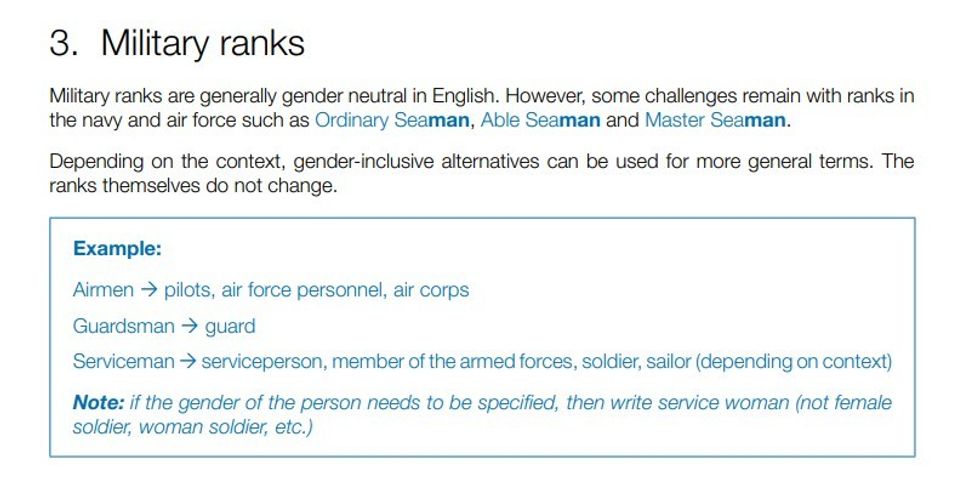
Nato's gender-inclusive language manual suggests replacing 'airmen' with 'air force personnel'
|NATO
The guidance also suggests that when referring to a transgender person, staff “use the appropriate title and pronouns for the person’s gender identity”.
However, the manual goes beyond just the military terms and also extends into language used for civilian roles.
It suggests replacing “chairperson” with “chair”, “statesman” with “political leader”, “cameraman” with “videographer”, “removal man” with “mover”, “waiter or waitress” with “server”, “policeman” with “police officer”, “cleaning lady” with “cleaner”, and “handyman” with “technician or repairer”.
Elsewhere in the document, Nato suggests avoiding the use of commonly used terms such as “manpower”.
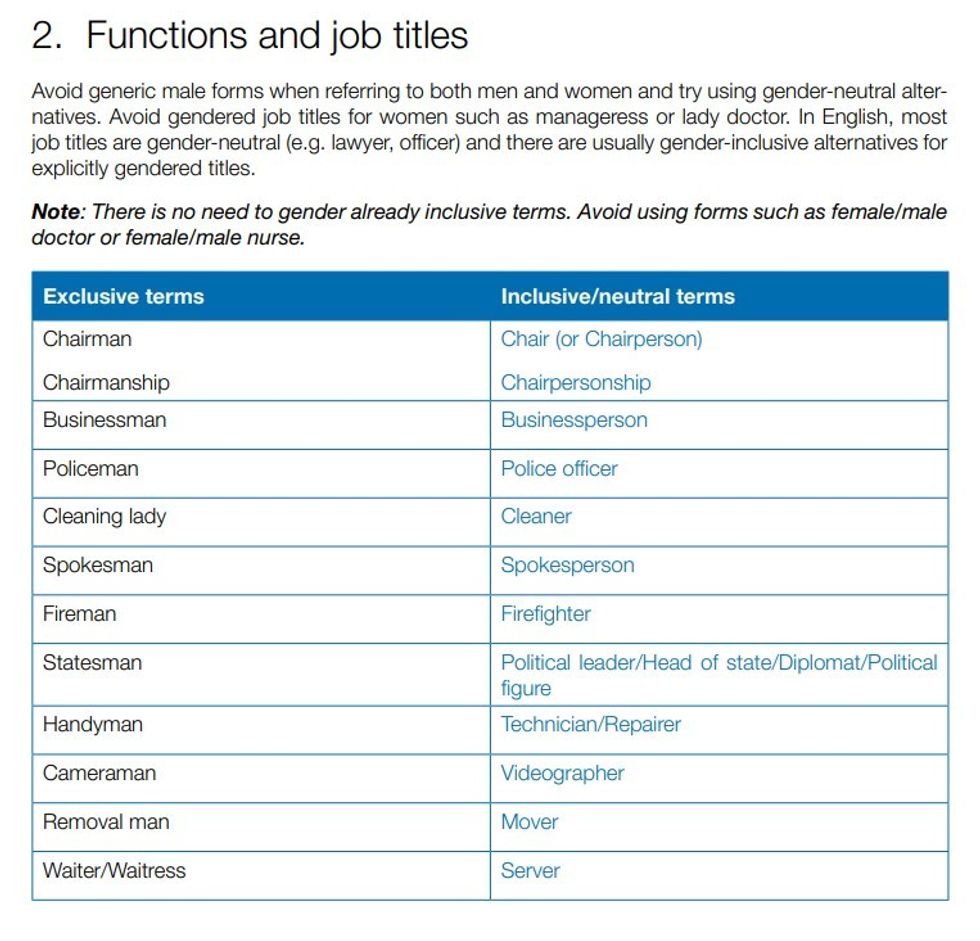
Elsewhere, Nato's gender-inclusive language manual suggests replacing 'spokesman' with 'spokesperson'
|NATO
It suggests replacing “manpower” with “workforce/staff/labour force”, “man-machine interface” with “human-machine interface”, “mankind” with “humankind/humanity”, “man-hours” with “work hours”, and “manning” with “staffing”.
Speaking on the guidance, Chairman of the Common Sense group of MPs, Sir John Hayes, said the alliance should rethink its priorities.
He suggested the organisation, formed in 1949, focus on defending its member states rather than “corrupting people’s thinking”.
He went on to criticise top alliance officials for “having too much time and too little sense”.
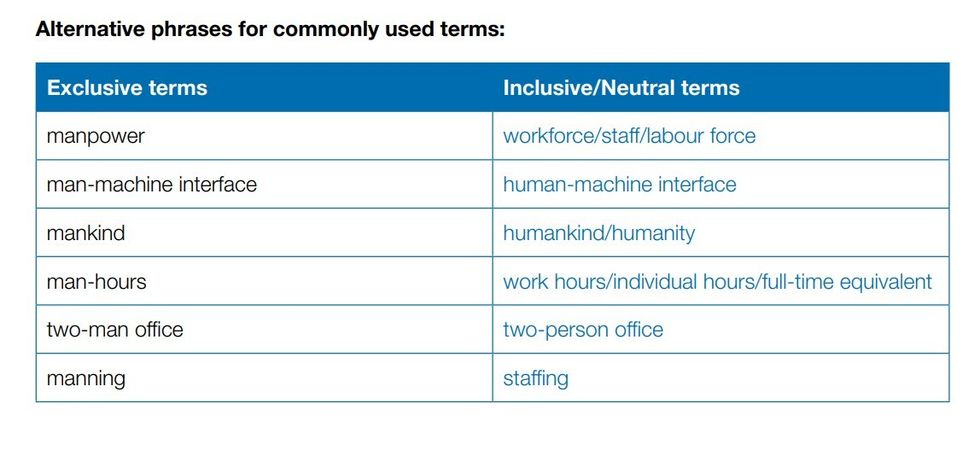
It also suggests avoiding commonly used terms
|NATO
Sir John said: “Their job is to defend their member countries, such as the Baltic states, not to promote and defend the distortion of language.
“Nato is an organisation dedicated to the defence of its nations, and people who need to be defended, don’t really mind whether it is done by a guardsman or a guard, or an air force personnel or airmen.”
Sir John continued: “They make up these terms and they are a farce.
“But the reason they are sinister is because the distortion of language is part of the way you corrupt people’s thinking – by changing the way they express themselves.
“And that’s why what seems at first a nonsense is actually something much worse.”
Despite the suggestions, there are a few terms which the guidance agrees is fixed.
One such example is of the term “unmanned aerial vehicle (UAV)” which the guidance claims cannot be replaced with the term “remote piloted vehicle (RPV)” as doing so would change the meaning.
It reads: “Even though RPV may seem like a gender-neutral synonym to UAV and does not contain the word ‘man’, it does not refer to the same concept.”
More From GB News







